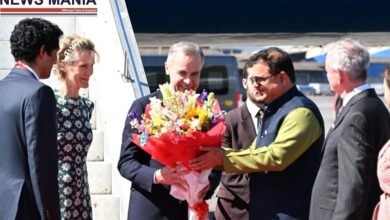India Receives The Fourth Set Of Swiss Bank Account Information

As part of the yearly information exchange, under which Switzerland has provided information about roughly 34 lakh financial accounts with 101 countries, India has received the fourth set of Swiss bank account information for its citizens and organizations.
What are these details, how important are they, and what occurs next?
Significance of Switzerland providing information to India
Since the two nations’ Automatic Exchange of Information (AEOI) agreement was signed in January 2018, India and Switzerland have exchanged four batches of information. The first such conversation with India happened in 2019.
The Swiss Federal Office has provided a detailed account of the massive AEOI 2022 exchange exercise in an effort to increase transparency and prevent money laundering. The country has just finished its information exchange with 101 countries, exchanging information on approximately 3.4 million financial accounts.
Turkey, Peru, and Nigeria are a few of the nations that have been added to the Swiss AEOI list for the first time. The Swiss Federal Tax Administration office also reported that the information exchange was reciprocal with 74 of these 101 nations.
What is the type and amount of data?
Before getting its first batch of banking data through the AEOI in 2019, officials had informed India that it would be one of 73 nations receiving the data and that multiple dispatches would be necessary in their (India’s) case, indicating the vast number of account holders.
This time, the Federal Tax Administration has announced that the precise nature of the submitted data comprises the name, address, country of residence, tax identity number, information about the reporting financial institution, account balance, and capital information.
Regulations for exchanging such sensitive financial data
The OECD, a global organization with headquarters in Paris, established the rules and specifications for the AEOI. The annual AEOI exchange, like the present bonanza of Swiss financial information, is purely intended for tax-only purposes, and in India, the Central Board of Direct Taxes (CBDT) is in charge of it and will take appropriate action.
The number of funds or the identities of account holders cannot be disclosed according to OECD regulations. The Common Reporting Standard (CRS), created by the OECD in 2014, enables every nation to acquire data from financial institutions (FIs) and automatically exchange it annually with nations whose AEOI agreements are in order.
What is the AEOI network’s reach in India?
India currently exchanges bulk financial and banking data with 78 nations under the OECD’s AEOI umbrella and receives the same data from 107 countries, with Switzerland being known to exchange some of the most extensive data.
The CBDT last year established a network of Foreign Asset Investigation Units (FAIUs) in 14 of its investigation wings, to which the information of that region that has reached India via the AEOI route is transmitted in a secure manner. This was done primarily due to the large volume of FI data coming in from now 100 countries.
The FAIUs are in charge of conducting the follow-up investigation into the FI data, and they start by looking into whether or not the taxpayer has disclosed any foreign bank accounts in tax forms.
News Mania Desk






